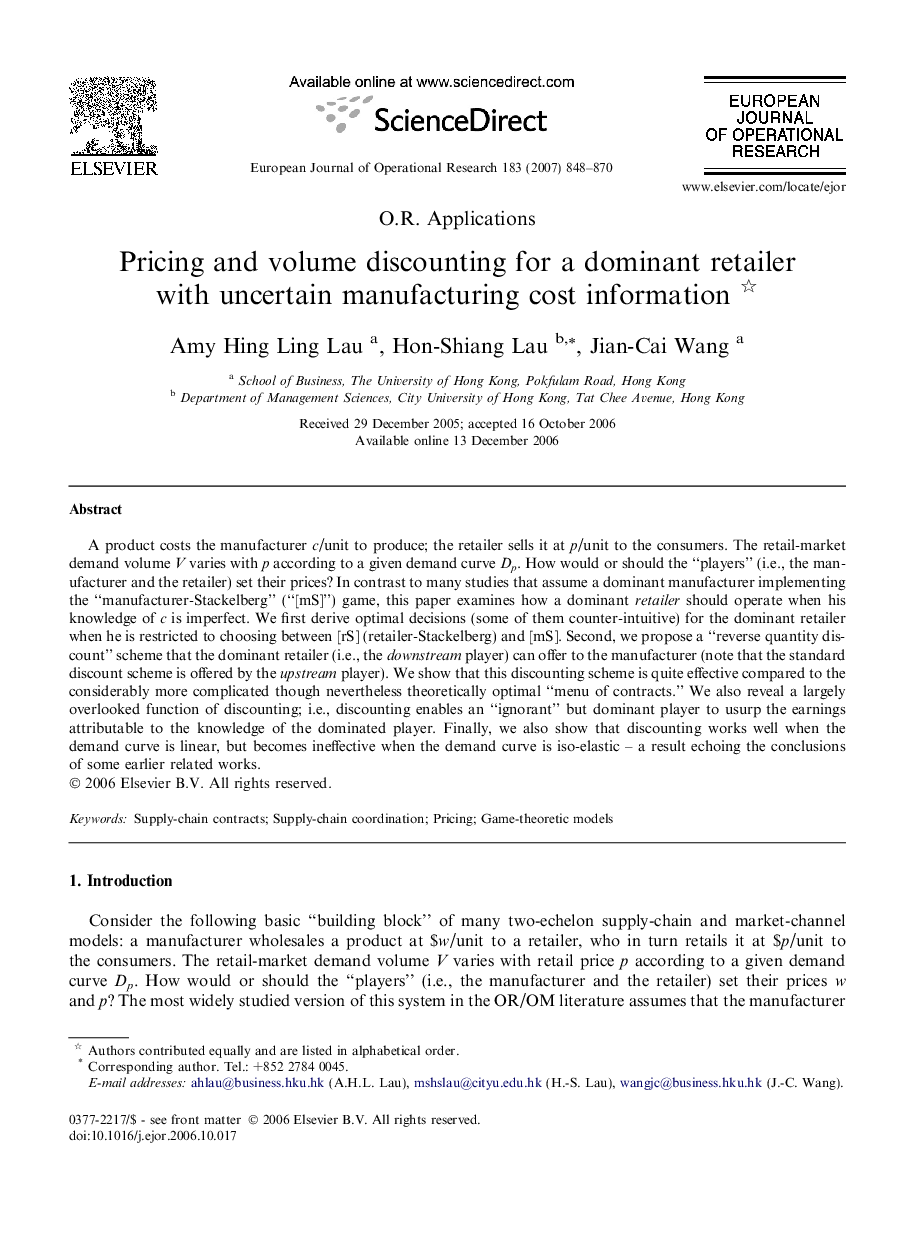| Article ID | Journal | Published Year | Pages | File Type |
|---|---|---|---|---|
| 482325 | European Journal of Operational Research | 2007 | 23 Pages |
A product costs the manufacturer c/unit to produce; the retailer sells it at p/unit to the consumers. The retail-market demand volume V varies with p according to a given demand curve Dp. How would or should the “players” (i.e., the manufacturer and the retailer) set their prices? In contrast to many studies that assume a dominant manufacturer implementing the “manufacturer-Stackelberg” (“[mS]”) game, this paper examines how a dominant retailer should operate when his knowledge of c is imperfect. We first derive optimal decisions (some of them counter-intuitive) for the dominant retailer when he is restricted to choosing between [rS] (retailer-Stackelberg) and [mS]. Second, we propose a “reverse quantity discount” scheme that the dominant retailer (i.e., the downstream player) can offer to the manufacturer (note that the standard discount scheme is offered by the upstream player). We show that this discounting scheme is quite effective compared to the considerably more complicated though nevertheless theoretically optimal “menu of contracts.” We also reveal a largely overlooked function of discounting; i.e., discounting enables an “ignorant” but dominant player to usurp the earnings attributable to the knowledge of the dominated player. Finally, we also show that discounting works well when the demand curve is linear, but becomes ineffective when the demand curve is iso-elastic – a result echoing the conclusions of some earlier related works.
